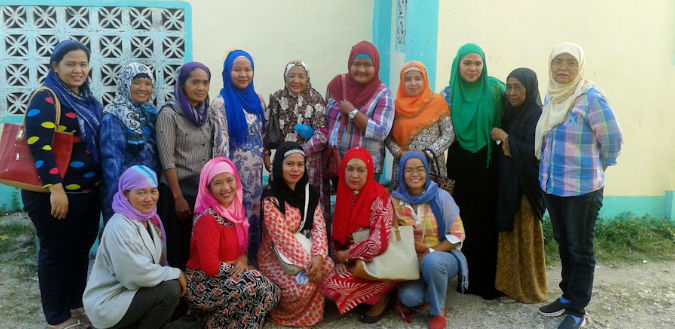Supporting women’s leadership and participation in the Bangsamoro

In October 2012, the Government of the Philippines (GPH) and the Moro Islamic Liberation Front (MILF) signed the Framework Agreement on the Bangsamoro (FAB), which puts both parties on the path to end nearly four decades of intermittent violent civil conflict. The centrepiece of the FAB is to create the Bangsamoro, a new autonomous entity in Mindanao and homeland for the Moro people, replacing the current Autonomous Region in Muslim Mindanao (ARMM). The FAB laid out an overall framework for a final settlement.
After 17 months of additional negotiations, the parties negotiated and agreed on crucial annexes pertaining to normalization, wealth sharing and power sharing, forming part of the Comprehensive Agreement on the Bangsamoro (CAB).
The CAB is one of the most celebrated peace agreements in the world as it is the first peace agreement ever signed by a woman chief negotiator from the government, Miriam Coronel-Ferrer, and participated in by a Moro woman also in the government peace panel, Yasmin Busran-Lao. Aside from this, it included gender-sensitive provisions, providing the backdrop for women’s participation and encouraging women’s voices and leadership in the transition processes and in preparation for the establishment of the new Bangsamoro political entity.
UN Women, through the Peace Building Fund, aims to contribute to ensuring women’s leadership and participation in the transition process and new Bangsamoro institutions. The project was implemented in 2015 and will end in December 2016.
To date, there are 979 women leaders and 157 civil society organizations in the Bangsamoro included in the mapping activities conducted from August 2015 to March 2016. The mapping provided a snapshot of the capacity development experiences and needs of women leaders and CSOs on gender, peace and governance as basis for developing project interventions. Out of these mapped women leaders, 134 were selected and trained on the thematic areas of gender, peace and governance and another 79 trained on advocacy. All trained women leaders developed action plans or agenda points that they will pursue at the individual level and as collective in their respective areas as part of claiming their spaces for leadership and participation and creating a constituency for peace in the Bangsamoro.